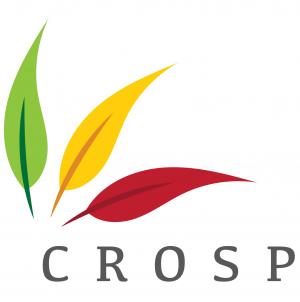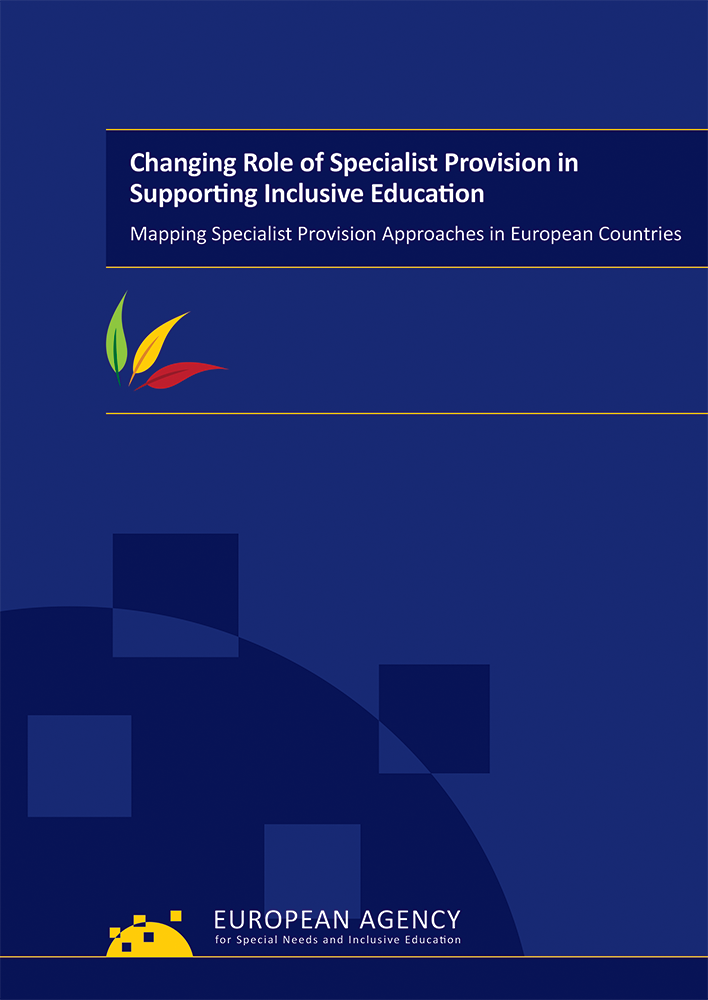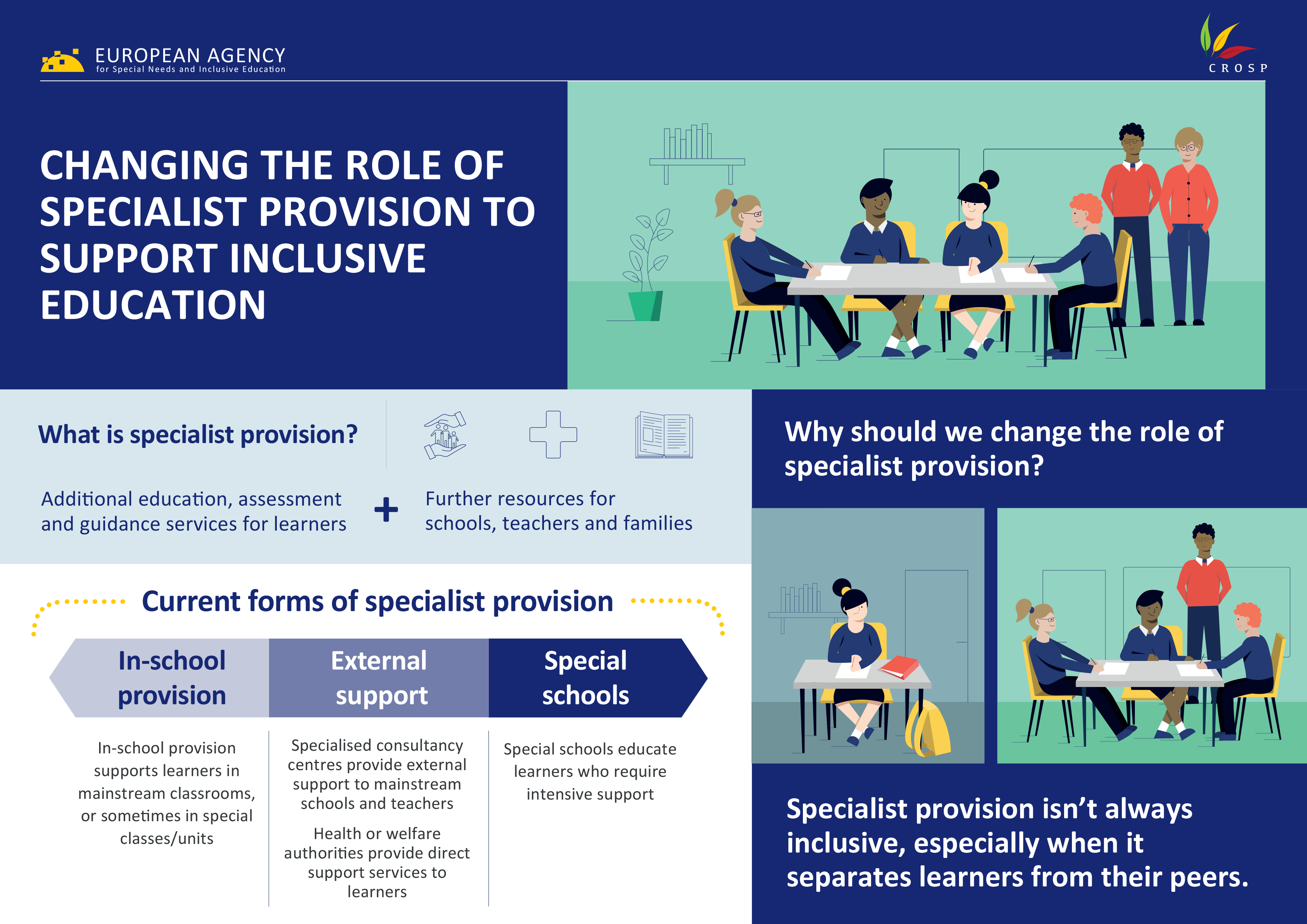Peer-learning activities (2019–2022)
Phase 2 of the Changing Role of Specialist Provision in Supporting Inclusive Education (CROSP) built on phase 1’s main outcomes, focusing on peer-learning activities. It aimed to develop a tool that focuses on the four main issues to consider for changing the role of specialist provision: governance, funding, capacity building and quality assurance.
Activities included:
- developing an activity methodological framework (early 2020);
- two rounds of thematic workshops (2020–2021);
- on-going data analysis and development of the activity tool (2020–2021);
- a final conference (2022).
The peer-learning approach aimed to enable member countries to develop more effective strategies for improving specialist provision’s role for inclusive education. The peer-learning activities included two rounds of thematic workshops, where participating countries engaged in pre-agreed activities and discussions on the four main issues.
These workshops addressed three main questions:
- What are the characteristics of policies and strategies that can support the transformation of specialist provision into a resource for mainstream education?
- How can co-operation mechanisms between specialist and mainstream provision enable stakeholders (policy-makers, professionals, learners/peers, families, community) to implement and monitor inclusive education?
- Which attitudes, skills and competences are required for professionals from specialist and mainstream provision to act as a resource for schools, learners and the wider community and to accept external resources?
A communication platform for participants was set up to allow discussions to continue between the two rounds of thematic workshops.
First round of workshops (October 2020)
The first round of workshops took place online. The participants identified policies and strategies for each thematic area (governance, funding, capacity building and quality assurance) that can effectively support the changing role of specialist provision towards inclusive education.
Learn more in the news item about the first round of workshops.
Second round of workshops (October 2021)
The second round of workshops identified critical factors and key drivers for change for each issue to be embedded in the tool. It also focused on the tool’s design and dissemination.
Find out more in the news item about the second round of workshops.
Final conference (May 2022)
At the final conference, participants discussed the tool’s quality and usability, as well as the dissemination strategy and possible follow-up activities.
Read more in the news item about the CROSP conference.
Phase 2 outputs
- CROSP Policy Self-Review Tool (in 25 Agency languages)
- CROSP Final Synthesis Report
- CROSP Final Summary Report (in 25 Agency languages)


